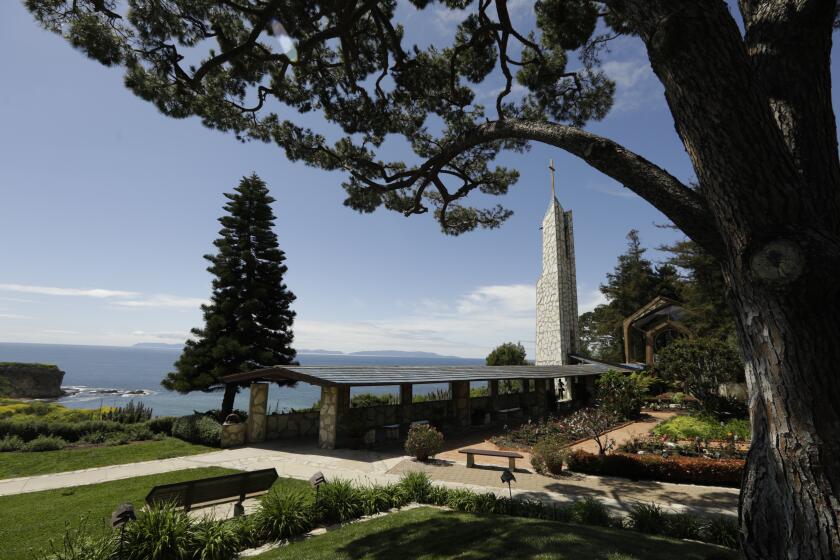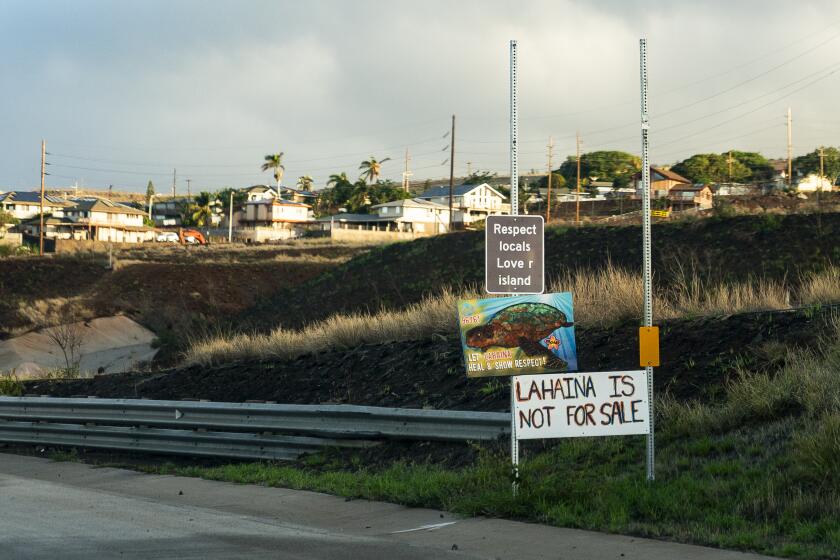Southern California voters reject most local tax increases
Recession-weary voters rejected tax increases and bond proposals in many Southern California cities and school districts Tuesday, but a few measures in cash-strapped local governments defied the odds and won approval.
School bond measures failed to muster the required 55% approval in such areas as Baker Valley, Claremont, Lynwood and the Mt. San Jacinto Community College District.
But school bond measures passed in Anaheim, Big Bear Lake, Centinela Valley, Duarte, El Rancho, Magnolia, Rialto and Wiseburn.
Proposals to increase parcel taxes to better fund schools, which needed a two-thirds vote to be approved, failed in Pomona and Ventura. Irvine voters, however, approved an advisory measure urging the city to continue to help out their school district.
Voters in five Southern California counties also sent mixed messages on a variety of municipal spending measures. A finance consultant for the League of California Cities said there were 186 finance-related ballot measures on local ballots throughout the state as cities and counties sought help with tight budgets.
In Los Angeles County, utility tax measures failed in Bellflower, El Segundo and Pomona. Carson voters rejected a one-cent local sales tax to preserve city services. But voters approved additional local taxes in Santa Fe Springs, Santa Monica and South El Monte. And La Puente voters gave a hearty thumbs up to a proposal to tax medical marijuana sales.
Voters in Costa Mesa narrowly authorized a hike in the hotel tax, and utility users tax proposals were approved in Huntington Beach, La Palma and Placentia. In Ventura County, voters in Port Hueneme also approved such a measure.
The Riverside County Regional Transportation Commission won authorization for local transportation projects. Hotel tax proposals were rejected in the Riverside County cities of Lake Elsinore and Moreno Valley, but approved in the city of Riverside.
In San Bernardino County, voters turned down both city spending measures on Tuesday’s ballot — a so-called transactions and use tax, similar to a sales tax, in Redlands and a hotel tax increase in Ontario.
Meanwhile, voters cast ballots in other local and regional races.
In Orange County, Shawn Nelson captured 62.9% of the vote to retain the one open seat on Orange County’s five-member Board of Supervisors in a contentious race against Anaheim City Councilman Harry Sidhu.
Nelson joined the board in June after winning a primary to fill a seat vacated by Supervisor Chris Norby, who left to fill the state Assembly seat vacated by Rep. Mike Duvall, who resigned after he was caught on tape bragging about extramarital conquests at a public meeting.
Nelson had campaigned against hefty government pensions, but drew criticism from Sidhu after it was revealed that as a supervisor he had signed up for the most generous county pension plan. Nelson’s spokesman said the supervisor investigated the claims, discovered he had inadvertently signed the pension paperwork, was therefore able to opt out and did so.
In Anaheim, nearly three-quarters of voters cast ballots to ban cameras installed at city intersections to monitor for drivers who run red lights. Approval of Measure K comes amid growing debate about the cost and effectiveness of the cameras, which are used in dozens of California cities. Anaheim City Council members, who put the measure on the ballot, said they had no plans to install such cameras but feared future councils might be tempted to do so to generate revenue.
In Redondo Beach, voters narrowly approved a waterfront development measure so complicated that it took 180 pages to explain in the election materials sent out to city residents.
Measure G establishes new zoning and land-use standards for King Harbor and the pier, the AES power plant site and a section of Catalina Avenue leading to Pacific Coast Highway. It passed with just over 52% of the vote, according to semifinal results from the Los Angeles County registrar’s office.
The measure faced stiff opposition from the group known as Building a Better Redondo, which argued that it will allow too much construction and create traffic gridlock.
Times staff writer Molly Hennessy-Fiske contributed to this report.
More to Read
Start your day right
Sign up for Essential California for news, features and recommendations from the L.A. Times and beyond in your inbox six days a week.
You may occasionally receive promotional content from the Los Angeles Times.







